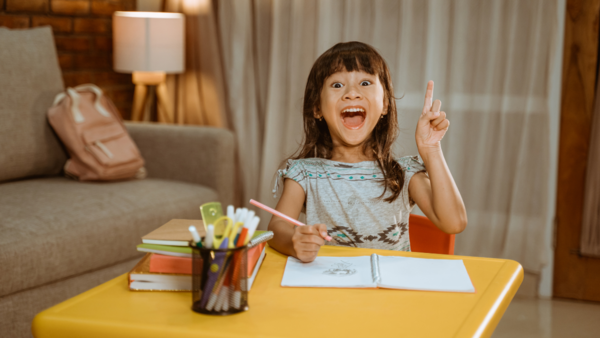Trending
6 tips for kids to memorise effectively and study efficiently
Children face immense information overload from schools and colleges. Specific, manageable learning targets were essential for increased motivation and academic success. These strategies aimed to make education more enjoyable and effective for kids. Here are 6 tips that can help kids memorise effectively and study efficiently.

Kids of all generations are often overwhelmed by just the amount of information they need to learn from schools and colleges. With the right strategies, children can enhance their memory and study habits, making learning a more enjoyable and fruitful experience. Here are 6 tips that can help kids memorise effectively and study efficiently.
Make learning active and engaging
Children learn better when they are actively involved in the learning process.

Use spaced repetition for long-term retention

Spaced repetition is a powerful technique that involves reviewing information at increasing intervals over time. This method strengthens memory by taking advantage of the "spacing effect," a phenomenon where information is more easily recalled when it's studied a few times over a long period rather than crammed into a single session. Spaced repetition significantly improves long-term retention, making it an essential tool for students.
Adding multiple senses into learning
When children use multiple senses while learning, they create stronger neural connections, making it easier to recall information later. For instance, combining visual aids like diagrams and charts with auditory elements such as explaining concepts out loud or listening to recorded lectures can enhance memory. Multisensory learning can improve both comprehension and retention, especially for young learners.
5 common mental health concerns among teens
Take regular breaks to avoid fatigue
The brain needs time to rest and consolidate information, making regular breaks essential during study sessions. The Pomodoro Technique, which involves 25-minute study intervals followed by a 5-minute break, is an effective way to prevent burnout and maintain focus. Students who take short, regular breaks tend to perform better in tasks requiring sustained attention compared to those who study continuously without breaks.
Sleeping is important for kids to increase their memory
Sleep plays an important role in memory consolidation, the process by which short-term memories are transformed into long-term ones. Students who had a good night’s sleep after learning new information retained it better than those who didn’t. For children, ensuring 8-10 hours of sleep each night is vital for optimal cognitive function and memory.
Set personal learning targets
Helping kids set specific, achievable learning goals can greatly increase their motivation and focus. By breaking down larger tasks into smaller, manageable targets, children can track their progress and feel a sense of accomplishment as they achieve each goal. Students who set personal learning targets were more likely to achieve better academic outcomes compared to those who didn’t set goals.
End of Article
FOLLOW US ON SOCIAL MEDIA











